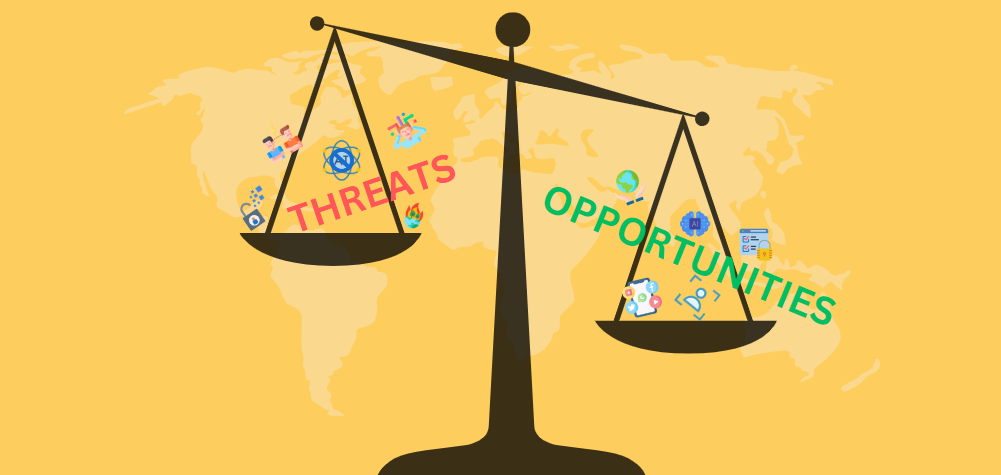Anticipated Challenges & Opportunities for Brands in the near Future
The consumer landscape is undergoing rapid transformation, presenting brands with a unique set of challenges. From shrinking attention spans to the rise of the experience economy, social media scrutiny, AI integration, and more, brands need to stay agile and innovative. Here’s a detailed look at the key challenges and what brands can do to navigate them successfully.
1. Attention Spans are Shrinking 📉
In today's fast-paced digital world, consumers have shorter attention spans than ever before. This trend makes it increasingly difficult for brands to capture and retain audience interest.
- Engaging Content: Brands must create concise, compelling content that quickly grabs attention and keeps audiences hooked.
- Innovative Approaches: Leveraging interactive and visually appealing formats like videos and infographics can help maintain engagement.
2. The Experience Economy 🌟
Consumers now prioritize experiences over products, valuing memorable and meaningful interactions more than physical goods and their possession.
- Memorable Experiences: Brands need to deliver exceptional and memorable experiences to build customer loyalty and stand out in the market.
- Experience-Centric Strategies:Investing in experience-centric marketing and service strategies can create a lasting impact on consumers.

3. Social Media Scrutiny 👀
The rise of social media means brands are under constant public scrutiny. A single negative incident can quickly escalate into a major PR crisis.
- Proactive Engagement: Brands must monitor social media channels actively and engage with consumers promptly to manage their online reputation.
- Crisis Management: Having a robust crisis management plan in place is crucial for mitigating potential fallout from negative incidents.
4. Data Privacy Concerns 🔒
Stricter data privacy regulations, like GDPR, CCPA and DPDPA, require brands to handle customer data with increased responsibility.
- Compliance: Ensuring compliance with data privacy laws is essential to avoid hefty fines and maintain consumer trust.
- Transparent Practices: Brands must be transparent about their data collection and usage practices to build and retain consumer confidence.
5. Personalization Expectations 🎯
Consumers expect personalized experiences and offers tailored to their preferences and behaviors.
- Advanced Analytics: Utilizing advanced data analytics to understand consumer preferences and deliver personalized experiences is key.
- Timely Offers: Brands must provide relevant and timely offers to engage consumers effectively.
6. Sustainability Matters 🌍
Sustainability and ethical practices are increasingly important to consumers, influencing their purchasing decisions.
- Sustainable Practices: Adopting sustainable practices and reducing environmental impact are essential for brands to stay relevant.
- Clear Communication: Communicating sustainability efforts clearly can enhance brand reputation and attract environmentally conscious consumers.
7. AI and Automation Integration 🤖
Stricter data privacy regulations, like GDPR, CCPA and DPDPA, require brands to handle customer data with increased responsibility.
- Technological Adoption: Brands must stay abreast of technological advancements and integrate AI and automation into their operations.
- Enhanced Efficiency: Leveraging these technologies can lead to improved efficiency and customer experiences.
8. Evolving Consumer Preferences 🔄
Consumer preferences are continually evolving, with growing interest in health, wellness, and ethical consumption.
- Continuous Innovation: Brands need to innovate continuously to meet changing consumer demands and stay ahead of the competition.
- Alignment with Values: Aligning brand values with consumer preferences around health and ethics can drive brand loyalty.
9. Changing Workforce Dynamics 👩💻
The workforce is changing, with new work models and expectations from a younger, more tech-savvy workforce.
- Adapting to Change: Brands must adapt to new work models, including remote and hybrid work arrangements, to attract and retain top talent.
- Tech-Savvy Workforce: Embracing technology and fostering a culture of innovation can help brands stay competitive.
10. Loyalty Impact due to Shorter Attention Spans 🧠📉
- Fragile Loyalty: Falling attention spans challenge brand loyalty.
- Being Relevant: Brands need to create concise, engaging content and memorable experiences to maintain loyalty in line with the modern digital age.
11. Maintaining Consumer Trust 🤝
In an era of misinformation and fake news, maintaining consumer trust is more important than ever.
- Transparency: Brands must be transparent and authentic in their communications to build and maintain consumer trust.
- Trust-Building Initiatives: Implementing trust-building initiatives, such as ethical practices and transparent operations, can enhance brand reputation.

Conclusion
The coming decade presents a dynamic, challenging, yet promising landscape for brands. Staying agile, innovative, and consumer-focused will be key to thriving in this new environment. By addressing these challenges proactively, brands can build stronger connections with consumers and secure their place of growth in the future market.
Call to Action
Brands must start preparing now to navigate these challenges. Embrace change, invest in technology, and prioritize consumer experiences and trust to stay ahead in the game. Let's innovate and thrive together in this evolving landscape! 🌟






